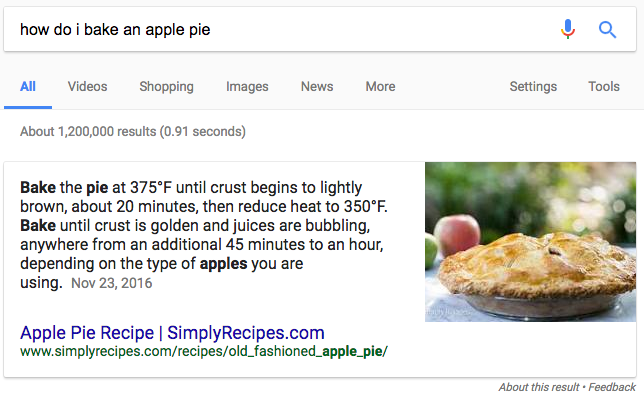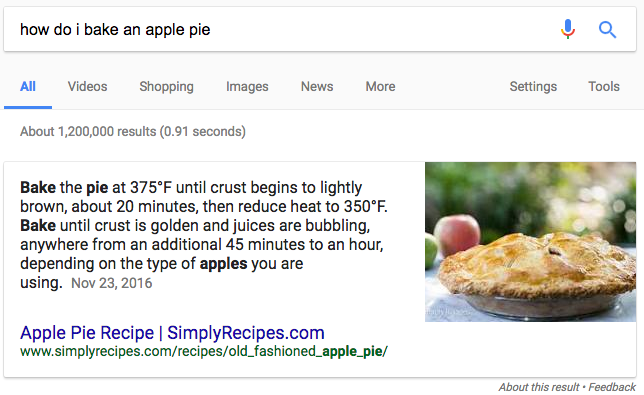“Did the Holocaust happen?” is not a question up for debate. A reporter found that the top organic search result for the query “Did the Holocaust happen” was not an authoritative website providing historical details, but the neo-Nazi site Stormfront instead. However, Google does offer the disclaimer: “Like all search results, featured snippets reflect the views or opinion of the site from which we extract the snippet, not that of Google.” Of course, there is a business objective for featured snippets and their prominent placement at the top of search engine results pages (SERPs). “People have agency,” Tesalona said. In response, it has since taken steps to curb the spread of false information, including making it easier for users to flag content for review by third-party fact-checking organizations. If a query like “Did the Holocaust happen?” arises, a designated section on a SERP could unpack related questions in natural language. This segment should link only to authoritative sources as a worthwhile step to truly finding the best answers. (It is now working harder to filter out bad pages from its algorithm, though still refusing to let users in on the specifics.) “As a user you want the best results. As a search engine, they want to give the best results.
“Did the Holocaust happen?” is not a question up for debate. You don’t have to search very hard to find irrefutable evidence. Ask the thousands of Holocaust survivors still alive today for confirmation. Ask Google, however, and the answer is not so clear.
We search Google for everything from cheap concert tickets to long-lost relatives. We place such confidence in the convenience of the search bar that people can settle heated arguments just by whipping out a smartphone. But last month, The Guardian demonstrated the danger of blindly trusting these results. A reporter found that the top organic search result for the query “Did the Holocaust happen” was not an authoritative website providing historical details, but the neo-Nazi site Stormfront instead. This reveal prompted many to ask: Should Google really give uncontested legitimacy to Holocaust deniers?
Initially, Google did not want to alter its search rankings, which would require tweaking its notoriously secret proprietary algorithm. After The Guardian’s article led to bad press, the company eventually made the changes, but they have not completely stuck, sparking debate over the finality of the fix. Stormfront now sits back in the top slot for that search about the Holocaust.
Back in 2004, Google Search came under fire from the Anti-Defamation League for a similar controversy. A search for the word “Jew” gave prominence to, you guessed it, Holocaust denials. Google first refused requests then as well, only to later amend its algorithm.
In these conversations, the discussion always focuses on ways the user can influence the algorithm. But if a troll trained in search engine optimization can quickly upend any attempts to control this algorithm, Google needs to change the way it thinks. Here’s how it can organize search results in a way that’s clear, coherent, and responsible.
1. Give prime real estate to reputable sources
Instead of creating a turf war, Google should prioritize authoritative information by grouping credible links into segments under headers such as “Reference.” When it comes to questions that have definitive answers, Google has a responsibility to deliver them. In the case of casting doubts on a documented genocide, what purpose does a forced “neutrality” serve?
Google has already flirted with this technique by quietly introducing “featured snippets” to answer questions in search. These pull content from external sites deemed authoritative enough by the algorithm. For example, the query “how do I bake an apple pie” returns a featured snippet that contains a link to a 2014 recipe, a picture of a pie, and a succinct summary. These snippets are embedded at the top of the page, which is precedent for bringing more focus to credible content. However, Google does offer the disclaimer: “Like all search results, featured snippets reflect the views or opinion of the site from which we extract the snippet, not that of Google.”

Of course, there is a business objective for featured snippets and their prominent placement at the top of search engine results pages (SERPs). “They’re trying to answer the…

COMMENTS